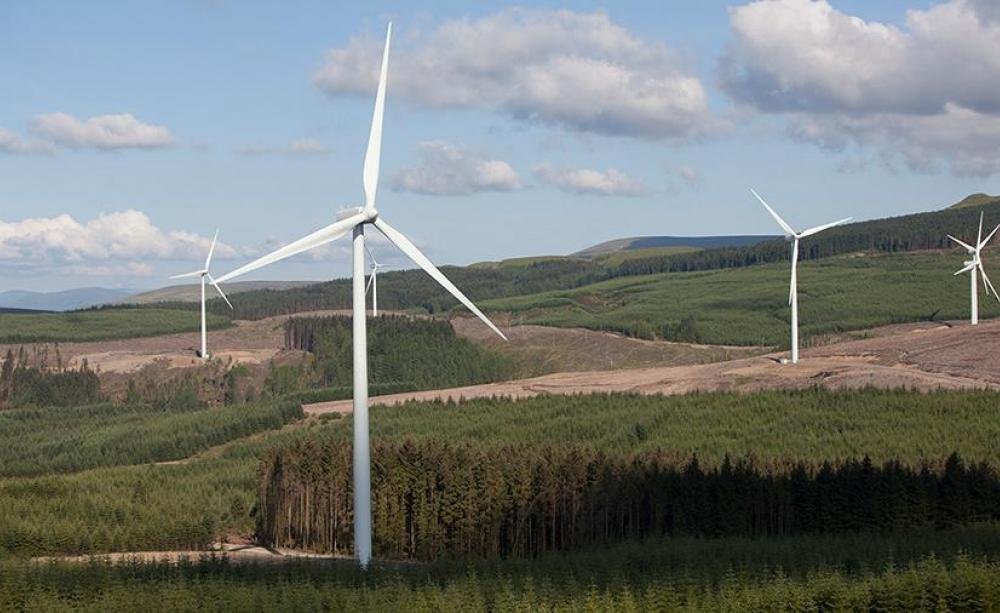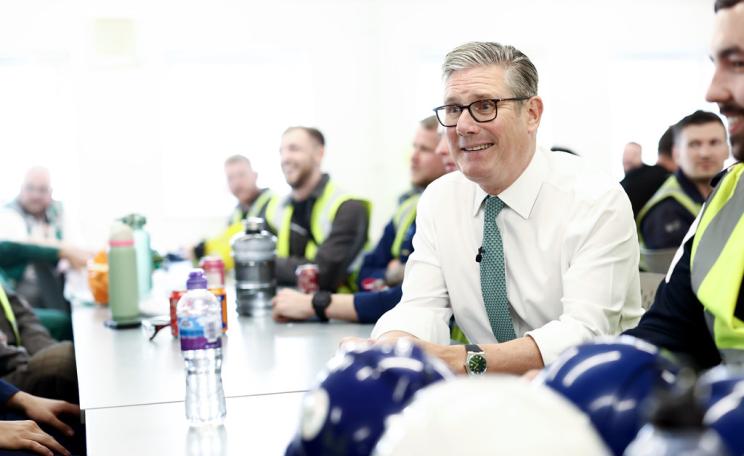Scotland’s decarbonisation transition is underway in the context of widening inequalities post-pandemic and a growing cost-of-living emergency.
Major changes are urgently needed to decarbonise Scotland’s economy in the face of the cost of living crisis, a new report has said.
The publication, released by the Just Transition Commission on Thursday, says such a move would also benefit those who need it most, and would secure jobs.
The independent expert advisory commission serves to aid Scotland in achieving a carbon-neutral economy while ensuring it is fair for all.
Transmission
“It will be an unjust transition if it is not an investment-led recovery,” the group said in its report. “We can build a clean, value-generating economy for the future. But we need to deliver at pace.”
It said it is looking for “early indicators of serious ambition to show that transformational change will be achieved”, adding: “Scotland’s decarbonisation transition is already underway, in the context of widening inequalities post-pandemic and a growing cost-of-living emergency.
“Government policy needs to redress these inequalities, not widen them.”
The group said annual net-zero investment will need to have grown more than five-fold by 2030, and encourages the Scottish Government to propose expansions to fiscal and monetary levers in its review of the Smith Commission in order to finance the just transition.
Major investment is needed in the country’s energy transmission and distribution infrastructure, the report says, and calls for a clear “Energy Road Map” to make the most of new supply chains for clean generation and transmission.
Decarbonise
It also highlights the rising number of households living in fuel poverty as the cost of living crisis continues, and says urgent action is needed to make homes more energy efficient in a bid to bring down energy bills.
The value of high-quality, affordable public transport is underlined by the group, especially for those on lower incomes.
It said: “The rapid improvement and broadening of mass public transport must be a priority for government, in order to deliver a much higher quality of service and well-paid, secure employment for transit workers.
“Continued failure here guarantees locking-in and worsening existing inequalities as we decarbonise.”
Farmers, crofters and local communities should be protected by future agriculture support as they reduce their carbon emissions, the report adds.
Rapidly
Professor Jim Skea, chair of the commission, said: “Today’s report is about the practicalities of delivering a just transition for Scotland.
“We have identified strategic opportunities, risks and roadblocks, and the actions required to address these.
“Scotland’s approach to tackling these complex challenges has already attracted interest and admiration around the world.
"This ambition now needs to be matched with action from government, and across society, that materially enhances the livelihoods and well-being of people across the country as we decarbonise rapidly and at scale.”
This Author
Hannah Carmichael is the PA Scotland political reporter.




